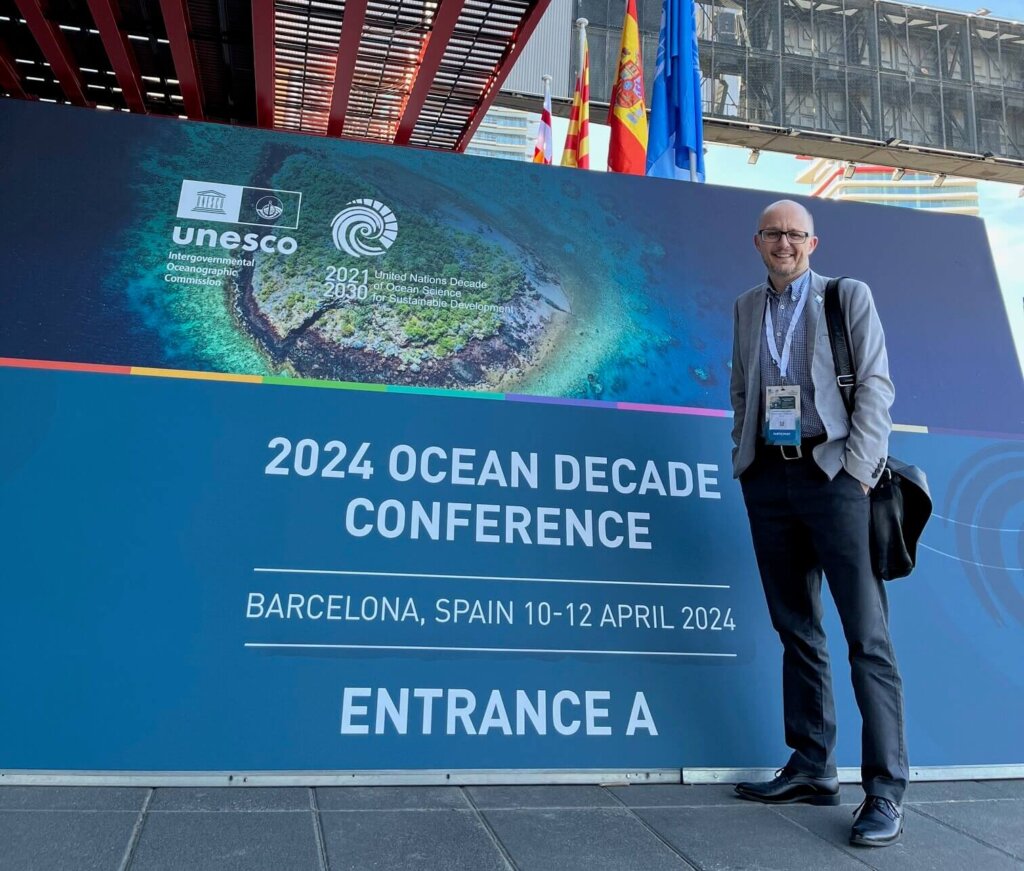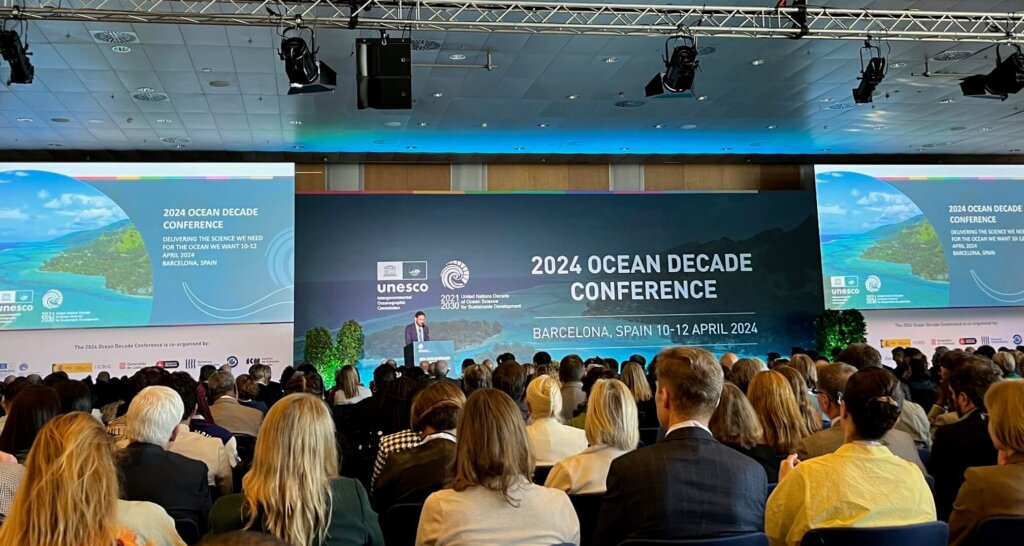Ocean Decade Conference
We are approaching the middle of the critical decade for the future of our oceans.
The devastating mass bleaching that is gripping our precious Great Barrier Reef, the 5th in just 8 years, paints a stark picture of the challenges facing marine life here and around the world right now.
Global concern about the gaps in the action and science to ensure we protect our oceans, and global recognition that now is the time we must act, led to the UN declaring this the Ocean Decade.
Stepping up to meet the importance of this current decade, over the next 12 months there is a series of critical international meetings, conferences and negotiations as the global community of blue neighbours – nations, stakeholders, marine industries and ocean advocates like ourselves – wrestle to ensure collective action is taken at the scale and pace needed if this decade is to mark the turning of the tide for the health of our blue planet.

The first water taxi off the rank is the UN Ocean Decade Conference in Spain, where I’ve been representing AMCS and which just drew to an end. Providing a voice for Australia’s oceans on the international stage is one way AMCS acts to ensure they are better protected and help with the heavy lifting for our global oceans.
In testament to the importance of Australia’s marine environment and the strength and breadth of those standing up for them, there was a strong representation from Australia, including First Nations representatives from Great Barrier Reef and Northern Territory communities and scientists from Australia’s hugely respected marine research community.
Three years into the Ocean Decade (full name the UN Ocean Decade for Science for Sustainable Development 2021-2030), this international meeting was charged with taking stock of progress delivered so far, and to set a clearer forward agenda for the rest of the decade.
The Ocean Decade is a good, necessary global initiative. It is generating momentum and bringing attention to the plight of our oceans. However, some course correction is needed. Progress in delivering action is facing familiar speed bumps including the lack of funding and political/decision maker hurdles to acting.

In light of this, the Conference proved a necessary refresh, with clearer action drafted in a series of ‘white papers’. These set forward plans to galvanise action on 10 key challenges facing our oceans, challenges like protecting and restoring marine ecosystems, beating pollution and making sure the development of the ‘blue economy’ is sustainable.
The Conference also released the 2024 Ocean Decade Barcelona Statement which gives a clear picture of what’s needed next.
At their worst, international conferences can be exercises in empty rhetoric. At their best they deliver concrete commitments, precipitate genuine action and build momentum that leads to further progress.
The Ocean Decade Conference has made a start. It is clear that the UN Ocean Decade has become a movement, but only time will tell whether it creates the necessary revolution needed in translating the science into urgent action as our oceans face the escalating impacts of the twin biodiversity and climate crises.